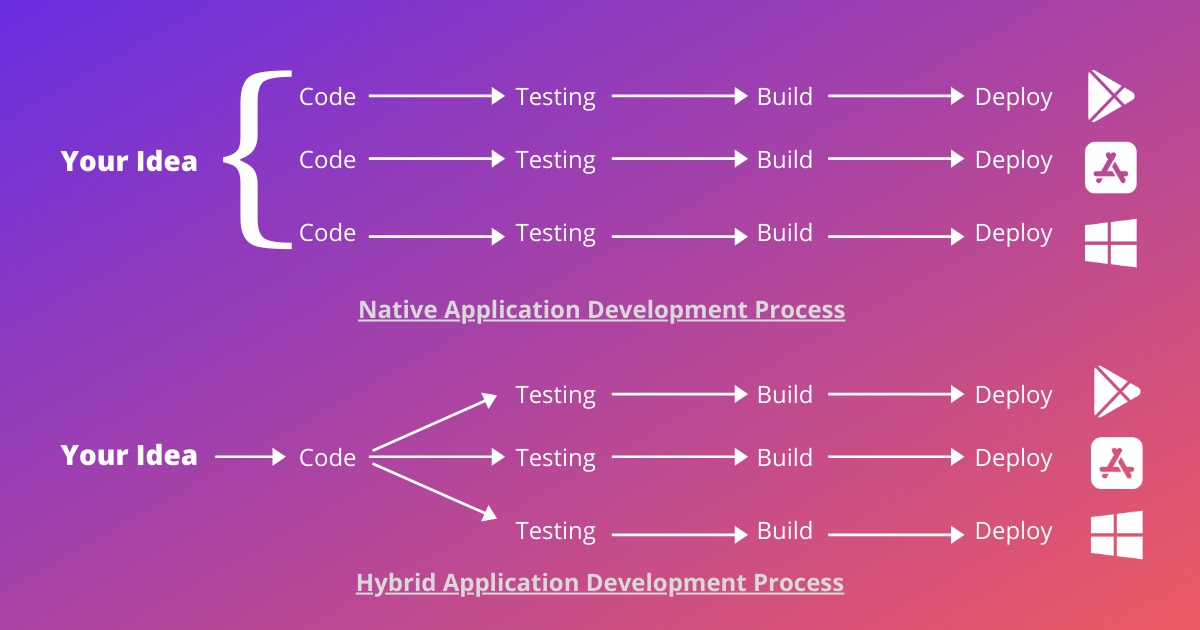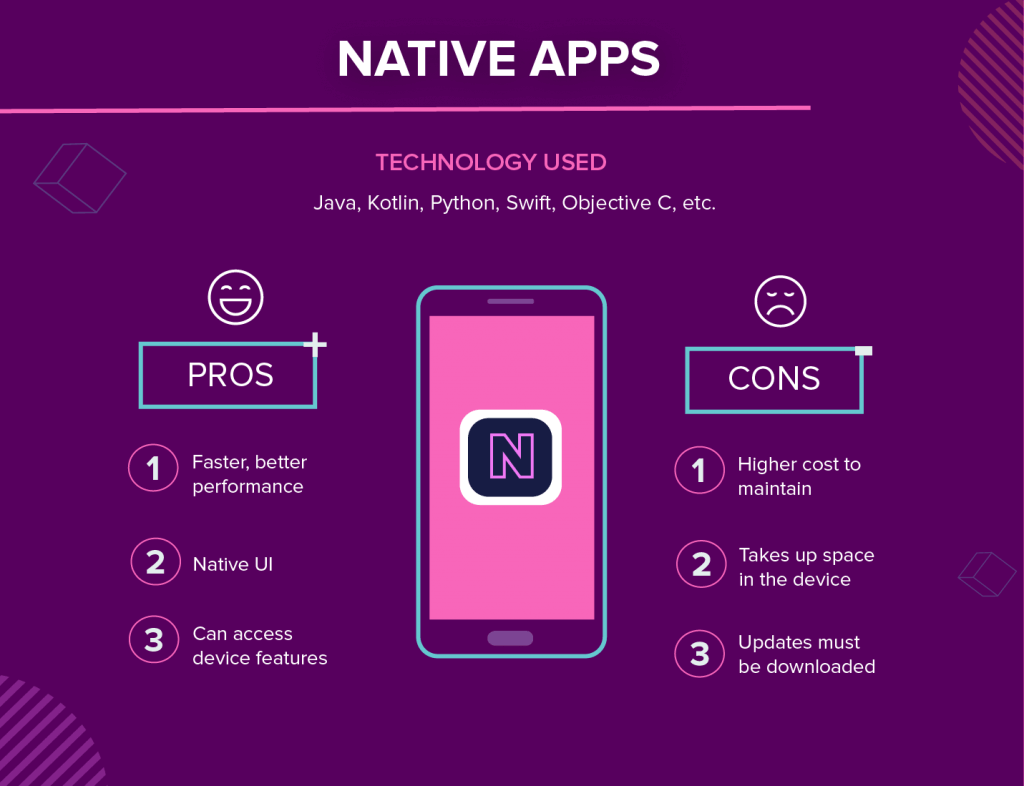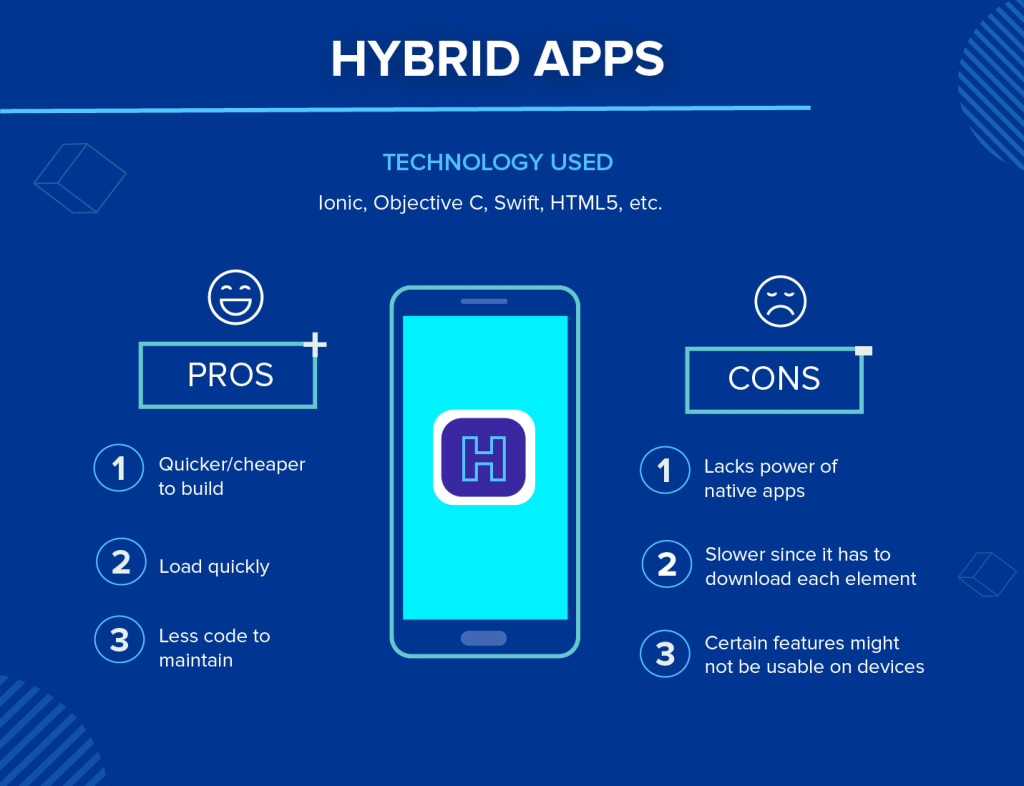Planning to develop a mobile application? But confused, what type of app will work for you? Well, that is not an intimidating task. Here you will get details of the top 10 differences between Native & Hybrid apps. The article is going to be a big savior if you are stuck between choosing the right app type for development.
Native applications are usually affordable and work only on a single platform like iOS or Android. On the other hand, Hybrid technology requires comparatively more money and sometimes lacks a user interface. Both Native and Hybrid Apps will aim at the mobile audience. With the growing mobile users in the past few years, It is necessary to have an interface that can connect with the target audience.
The article is about the details of native app development and hybrid mobile app development. You will get to know about some common differences which you might consider before developing any application.
Native vs Hybrid Application: Which One is Better?
In the world of technology, app development is also dealing with some major preferences like web apps, native & hybrid apps, etc. It has become a confusing part. The process involves all development tantrums but a bad interface, somewhere the interface is good but it is not that affordable. So here is a piece of information that will provide some good native & hybrid app differentiation.
Common Feature of Both Apps:
There are a few differences which we are going to be pointed out in this article. You will get a clear understanding of the significance, differences, benefits, and snags of both of the applications.
Native Apps for Mobile Users:
Native applications are single-platform apps. These are built for a solo platform like iOS or Android. The language utilized here is Java. The Cost and User Interface of the applications are extremely awesome.
Hybrid Apps for Mobile Users:
As the name itself indicates, these are the mixture of two components i.e Native & Web Apps. Hybrid applications are downloadable from the app store or play store easily just like the native apps. Moreover, it holds the elements of web apps which are cross-compatible web technologies.
Development Process of Both Apps

Source: Angular Minds
Native Apps:
The development of native apps is a bit tough and runs comparatively slower than hybrid apps. But when it comes to compatibility, native apps can be paired with any platform or any operating system features i.e. microphone, camera, contact lists, etc.
Hybrid Apps:
Hybrid applications use various methodologies including HTML, CSS, and Javascript frameworks. Simultaneously the app contains the cross-platform UI which makes it smooth but not that much as native apps.
A Quick Tour On Hybrid vs Native Apps (Differentiations)
Here in this table, you will get 10 prominent differentiation between Hybrid and Native Application Development. Both are the masterstroke in their zones. But for those who wish to check a clear difference then here is the tabular representation for you.
| Category | Native | Hybrid |
| Language Used | Swift or Objective-C and Java | HTML, CSS3 & Javascript |
| Nature | Not that easy to built | Easy to built |
| Costing of app development | Around $100,000 | $5000 to $1,00,000 |
| Behaviour | Complex | Easy to Manage |
| Deployment | Either Android or iOS | Compatible with all |
| Technique Utilize | SDK, IDE | Xamarian, PhoneGap |
| Time Duration | 3-6 months | 2 to 5 months |
| Development Tools | Of No Use | Cross-Platform Tools |
| Flexibility | No Flexibility | Complete Flexibility |
| Growth | No Growth | React Native (associated branch) |
Advantages and Disadvantages of Developing Apps in Native & Hybrid Technology
Benefits (Pros) Of Developing a Native Mobile Application
- A minimum of 6 months is required to prepare a secure and top-performing native app.
- Better security and reliability.
- Easy to implement new features.
- It can operate in offline mode.
- It follows the Android guidelines completely.
Source: CleverTap
Cons of Native Apps:
Each and everything in the app technology has some Pros as well as Cons. Here we are going to discuss some of the snags which you might face when it comes to the development of Native Mobile Apps.
- The developers will develop the native apps each time you need a different platform.
- Each development code has its time frame which increases the development time and costing both.
- Different skill sets are required to develop an app.
Benefits (Pros) Of Developing a Hybrid Mobile Application
- It holds a faster development process.
- The coding does not go complex, it remains easier due to compatibility.
- Flexible UI/UX development
- Cost-effective. No need to spend huge money on development.
- Contains features of native and web apps.
Here in this section after getting an eye over the differences, pros of both app technologies, you can check the Cons (disadvantages) of developing an app in both techniques. This would be additional information you will get and thus can make the decision of developing an app in the required format.
Source: CleverTap
Cons of Hybrid Apps:
- The 3D, HD Games, High-Graphics Oriented apps, and other performance may not work well in Hybrid Apps.
- It has dependencies on different frameworks like Cordova, Ionic, etc.
- Hybrid is always dependent on Native plugins. This also adds complexity to the development.
Final Words:
In conclusion, Hybrid Mobile App and Native Mobile Apps work well with great interfaces but there are a few limitations that make them confusing. Hybrid apps use both features of native and web apps but it also caters complexities. On the other hand, Native apps are not that time taking but each time your development will be unique for each type of platform.


